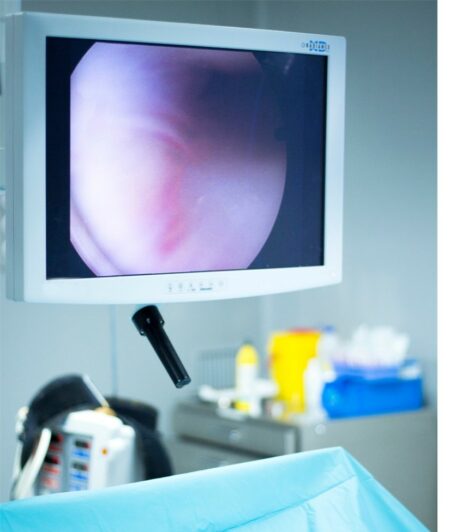
31 Oct Beyond Cancer Detection: Other Conditions Diagnosed Through Colonoscopies
Embarking on the journey of a colonoscopy, the mind naturally turns to thoughts of cancer.
Yet, this vital procedure serves a broader diagnostic purpose, identifying not only colorectal cancer but also a range of other common, manageable conditions. The following article unveils the myriad of conditions and diseases that can be revealed through a colonoscopy, going beyond the realm of cancer.
The Significance of a Colonoscopy
A colonoscopy is a common medical procedure wherein a doctor uses a scope to examine the inner lining of an individual’s colon and rectum. During the examination, a colonoscope, which is a long, flexible tube, is inserted via the rectum and guided through the colon.
Through the camera and light source attached to the end of the scope, the doctor is able to explore bowel wall tissues and obtain samples for biopsies if needed. To minimize discomfort during a colonoscopy, the patient is sedated. After a brief observation period, the patient will be allowed to go home.
What a Colonoscopy Can Detect
• Colorectal Cancer
A colonoscopy is the best way to detect colorectal cancer, which typically doesn’t show any symptoms in its early stages. Through the procedure, doctors can detect and remove precancerous polyps before they turn cancerous.
• Hemorrhoids
Hemorrhoids, also called, piles are swollen veins in the rectum. They can be either internal or external and can be quite scary, as they cause itchiness, discomfort, bleeding, or severe pain.
Fortunately, hemorrhoids are very common and usually not a cause for concern. A colonoscopy can detect internal hemorrhoids, for which the doctor will recommend treatment.
• Constipation
Another common condition that a colonoscopy can detect is constipation. The condition is caused by a wide range of factors, but persistence may be a sign of an underlying issue.
If constipation doesn’t go away with standard treatments such as consuming a fiber-rich diet or increased fluid intake, a colonoscopy can help find out the root cause.
• Irritable Bowel Syndrome (IBS)
Irritable Bowel Syndrome is a condition of the colon that shows symptoms such as bloating, abdominal pain, diarrhea, and irregular bowel movements. While IBS is often linked to anxiety and stress, the exact cause of the condition is unknown.
An individual who exhibits the abovementioned symptoms can undergo a colonoscopy to rule out other diseases, so that their doctor can provide effective symptom management.
• Ulcerative Colitis
Ulcerative Colitis is a chronic inflammatory bowel disease that causes ulcers and inflammation in the inner lining of the colon and rectum. Individuals who suffer from this condition experience abdominal pain, fatigue, weight loss, and bloody diarrhea.
A colonoscopy is typically used to diagnose ulcerative colitis so that doctors can recommend the right treatment, which is usually medication, infusions or surgery.
• Diverticulitis
Diverticula, the small pouches in the colon, become infected or inflamed, leading to Diverticulitis. Sufferers of this condition experience fever, chills, and abdominal pain.
A colonoscopy helps diagnose this condition so that patients can be given pain relief, antibiotics, or surgery if necessary.
• Crohn’s Disease
A type of Inflammatory Bowel Disease (IBD), Crohn’s Disease causes inflammation in the digestive tract, with symptoms including severe diarrhea, abdominal pain, weight loss, and rectal bleeding.
A colonoscopy helps diagnose this condition and enables doctors to provide proper treatment, as there is no single treatment that works for all who have Crohn’s Disease.
A colonoscopy is an important medical procedure that can detect and diagnose numerous health conditions. While it sounds scary because of its association to cancer, it is also used to detect and treat simple digestive tract issues.



